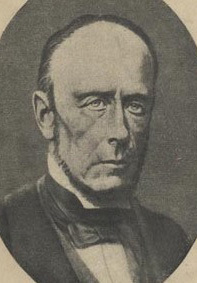
Biblioteca de Verão, #14 A Dama Pé-de-Cabra, conto que dá título ao livro, conta a história de um nobre senhor que, ao encontrar na serra uma dama, por ela se perde de amores; mas a dama não é quem parece ser e muito terá o nobre de sofrer em consequência das suas escolhas. Um conto misterioso, intrigante, marcante pelo tom com que é apresentado (quase como uma história contada em voz alta) e onde os elementos sobrenaturais são soberanos. O outro conto, A Abóbada, fala da construção do mosteiro da Batalha e, em particular, da abóbada da casa do capítulo. A visão de como o orgulho excessivo pode ser a ruína de um homem e a, por vezes, volátil vontade dos soberanos ganham vida neste conto envolvente, marcado por descrições soberbas e por uma grande mensagem, bem definida nos momentos mais intensos da narrativa. Um poderoso relato de uma época de grande poder e forte superstição.
Author

Alexandre Herculano de Carvalho e Araújo, a Portuguese novelist and historian. Born of humble stock, his grandfather was a foreman stonemason in the royal employ. Privation made him a man, and in his works, he proves a poet of deep and considerable power of expression. The stirring incidents in the political emancipation of Portugal inspired his muse, and he describes the bitterness of exile, the adventurous expedition to Terceira, the heroic defense of Oporto, and the final combats of liberty. In 1837 he founded the Panorama in imitation of the English Penny Magazine, and there and in Illustraco he published the historical tales which were afterwards collected into Lendas e Narratives; in the same year he became royal librarian at the Ajuda Palace, which enabled him to continue his studies of the past. The Panorama had a large circulation and influence, and Herculano's biographical sketches of great men and his articles of literary and historical criticism did much to educate the middle class by acquainting them with the story of their nation, and with the progress of knowledge and the state of letters in foreign countries. Grave as most of his writings are, they include a short description of a crossing from Jersey to Granville, in which he satirizes English character and customs, and reveals an unexpected sense of humour. A rare capacity for tedious work, a dour Catonian rectitude, a passion for truth, pride, irritability at criticism and independence of character, are the marks of Herculano as a man. He could be broken but never bent, and his rude frankness accorded with his hard, sombre face, and alienated mens sympathiea though it did not lose him their respect. His lyrism is vigorous, feeling, austere and almost entirely subjective and personal, while his pamphlets are distinguished by energy of conviction, strength of affirmation, and contempt, for weaker and more ignorant opponents. His History of Portugal is a great but incomplete monument. A lack of imagination and of the philosophic spirit prevented him from penetrating or drawing characters, but his analytical gift, joined to persevering toil and honesty of purpose enabled him to present a faithful account of ascertained facts and a satisfactory and lucid explanation of political and economic events. His remains lie in a majestic tomb in the Jerónimos Monastery at Belem, near Lisbon, which was raised by public subscription to the greatest modern historian of Portugal and of the Peninsula. His more important works have gone through many editions and his name is still one to conjure with.